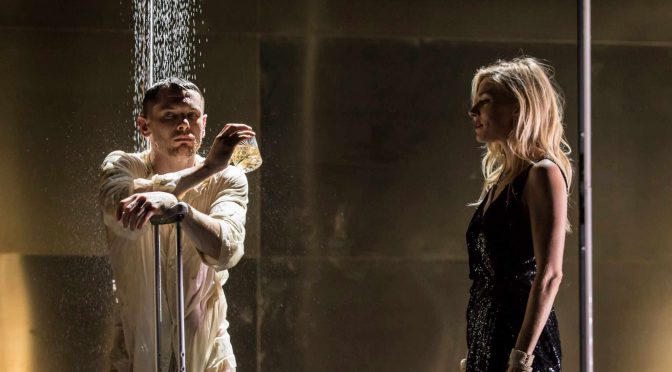With director Benedict Andrews and a couple of star turns on board, this foray into the West End by the Young Vic has plenty of allure. The story of marital tension between Maggie and Brick against the background of his wealthy father’s illness is not Tennessee Williams’ finest work. Of course, it’s still better than most plays you can see. And this production’s efforts to inject an arty edge could go a long way to increase its reputation within the playwright’s canon.
For a play somewhat tiresomely obsessed with mendacity, it’s a nice touch on Andrews’ part to present such a stripped-back stage – there’s nowhere to hide here. The intense focus respects Williams’ writing and sets up the cast for their sterling performances, even if it all becomes a little exhausting.
Sienna Miller plays Maggie the Cat. She injects a strong element of realism; you can sense her desire for her husband, her desperation at the breakdown of her marriage. Escaping from the shadow of Elizabeth Taylor’s depiction in the film version is no mean feat – Miller’s hard work deserves praise. Colm Meaney takes the part of Big Daddy and benefits from Andrews’ correct decision to balance the play so that it is equally about this grand patriarch. Meaney makes this “selfish beast” of a man truly compelling to watch.
Between both frequently loud characters comes Brick, former high-school athlete and sports commentator suffering from depression. Jack O’Connell takes the role and makes the quiet work for him. There are flashes of dignity in the performance and a good deal of anger, if not quite as much depth as might be required. O’Connell is a good stage drunk, though, and sections of the play that deal with alcoholism are the strongest, which comes as little surprise, given Williams’ own relationship with booze.
As the candles burn down on Big Daddy’s birthday cake, things start to get messy. The cake for start – you know someone is going to get dirty with it. It’s distracting to guess who and a relief when sticky sponge predictably ends up all over the set. Unfortunately, the messiness in the production extends to its direction. There’s a general untidiness that means Williams’ already sprawling story starts to drag. A shame since Andrews does have a strong central idea – to turn the family into white trash, with none of the usual genteel poverty. Maggie was “born poor, raised poor”, and this is very much new money. The insight makes for startling touches but needs more focus. Despite solid work, the treatment is too slow.
Until 7 October 2017
Photo by Johan Persson

